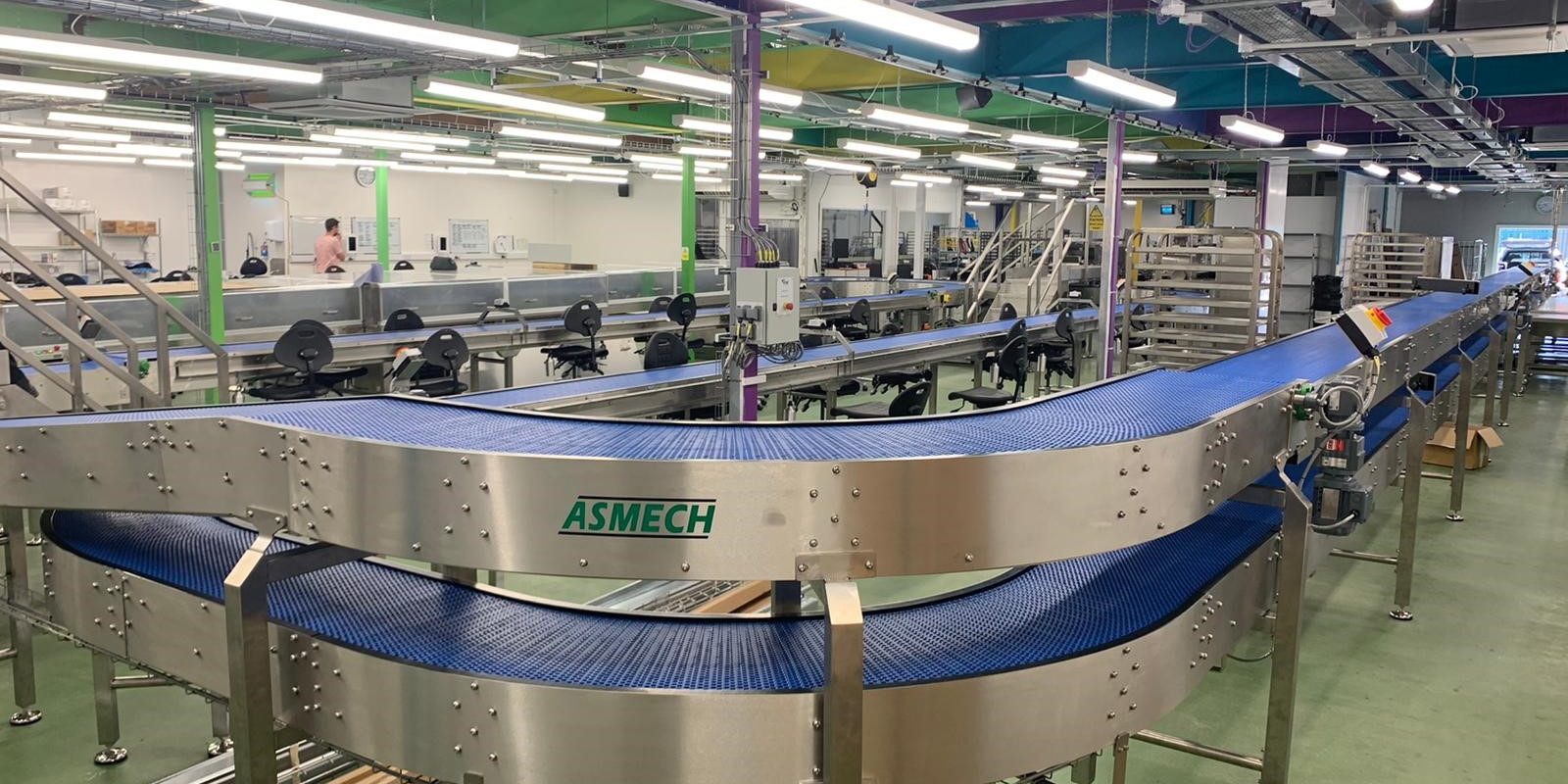The UK manufacturing sector stands at a pivotal juncture. On one hand, there’s an undeniable drive for increased productivity and global competitiveness. On the other, a persistent and widening skills gap continues to be a significant hurdle. But what if the very backbone of our production lines – the humble conveyor system – held a key to bridging this divide?
We’re seeing the future unfold today: AI-powered conveyor systems are not just moving goods; they’re intelligently moving our industry forward, directly addressing the UK’s skills challenge.
The UK’s Skills Conundrum and the Productivity Imperative
Reports consistently show the UK lagging behind G7 counterparts in automation density. This isn’t just a number; it translates into missed opportunities for efficiency and growth. Simultaneously, manufacturers across the country grapple with a shortage of skilled labour, particularly in critical STEM roles, and struggle to attract new talent. This creates a difficult cycle: a need for higher output, but a limited human workforce to achieve it.
Enter Artificial Intelligence. While the idea of AI taking jobs often sparks debate, in the context of UK manufacturing, it’s increasingly becoming a partner, an enabler, and a powerful tool for augmentation rather than pure replacement.
How AI Transforms Conveyors from Movers to Masterminds
AI breathes new life into conveyor systems, transforming them into intelligent, proactive components of the smart factory:
Smart Sorting and Precision Handling:
Old Issues: Manual sorting or complex mechanical diverters requiring human oversight and maintenance.
The AI Way: AI-powered vision systems integrated with conveyors can instantly identify, categorise, and direct products with incredible speed and accuracy. This reduces the need for human operators for repetitive sorting tasks, allowing them to focus on quality control or problem-solving. It also minimises errors, leading to less rework and waste.
Predictive Maintenance and Self-Optimisation:
Old Issues: Scheduled maintenance or reactive repairs after a breakdown, leading to costly downtime.
The AI Way: Sensors on AI-enabled conveyors continuously collect data on vibrations, motor performance, temperature, and more. AI algorithms analyse this data to predict potential failures before they happen. This means maintenance can be scheduled proactively, minimising unexpected downtime and maximising uptime – a direct boost to productivity without more staff.
Enhanced Quality Control In-Motion:
Old Issues: Spot checks or slower, dedicated inspection points.
The AI Way: AI-vision systems on conveyor lines can inspect products for defects, foreign objects, or incorrect assembly as they move. This real-time quality assurance prevents faulty products from moving further down the line, saving significant resources and improving overall product integrity, all without additional human inspectors.
Optimised Flow and Bottleneck Detection:
Old Issues: Identifying bottlenecks through trial and error or after production slowdowns.
The AI Way: AI can analyse the flow of goods across an entire conveyor network in real-time, identifying nascent bottlenecks, suggesting dynamic speed adjustments, or even re-routing products to maintain optimal flow. This continuous self-optimisation improves throughput and utilises existing resources more effectively.
Bridging the Gap: More Than Just Automation
The impact of AI-powered conveyors goes beyond simple automation; it actively helps bridge the skills gap by:
Upskilling the Workforce: Instead of performing repetitive physical tasks, workers can shift to monitoring AI systems, analysing data, and troubleshooting complex issues. This elevates their roles and creates more engaging, higher-value jobs.
Reducing Reliance on Scarce Skills: Where specialist skills for sorting or precise handling are hard to find, AI takes over, ensuring consistent output regardless of workforce availability.
Attracting New Talent: Modern, technologically advanced factories with AI-driven systems are more appealing to a new generation of skilled workers who seek innovative and stimulating environments.
By leveraging AI-powered conveyors, UK manufacturers can not only overcome current skills shortages but also create smarter, more productive factories ready for the challenges and opportunities of Industry 5.0 and beyond.
Whilst AI conveyor systems are becoming a powerful tool, Asmech Systems Ltd continue to bring decades of expertise in building reliable, efficient conveyor systems that can lay the groundwork for future technology. Contact us today on 01623 424 442 or at sales@asmechsystems.co.uk









